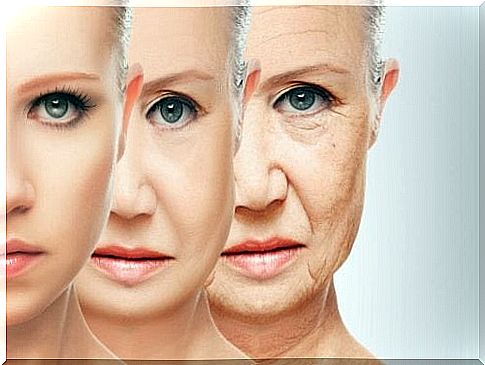Superfoods That Improve Brain Functioning

We are what we eat. Nutrition is of crucial importance in our health, and for this we must take very seriously the influence of the foods we eat on the functioning of our body and our brain. The human body needs the most varied nutrients to function perfectly, so it is essential to know the properties of different foods well.
The brain is one of our most important organs: we could compare it to a “control unit” that sends commands to the rest of the body. For this reason, we must make sure that our diet is healthy and adequate to take care of it at its best.
In today’s article, we introduce you to some foods and nutrients that the brain needs to function properly. The lack of some of these nutrients, or the excessive consumption of some of them, could have negative repercussions on this important organ.

Vitamins of group B
The different B vitamins contribute to energy production, growth and cell division. They are also present in the production process of hormones, enzymes and proteins. Furthermore, they have a function in maintaining the nervous and immune systems.
Vitamin B1 (Thiamine) is in charge of transforming food into energy, so that the brain absorbs glucose. Thiamine deficiency can cause depression, fatigue , attention deficit, memory or mental agility problems. Some foods rich in thiamine are:
- Pork meat
- Dried ham
- Fish
- Chicken
- Veal liver
- Egg yolk
- Raisins
- Peas
- Flax seed
- Tomato
- Potatoes
Vitamin B3 (Niacin) has an energy function, together with vitamins B1 and B2. It nourishes the brain, calms anxiety and prevents insomnia. The foods that contain it are:
- Milk and derivatives
- Blue fish
- Peanuts
- Pumpkin seeds
- Lentils
Antioxidants
They can prevent or delay cell damage, and are also involved in the aging process. Oxygen is very important to our life, but exposure to this gas causes oxidation, and the body’s chemicals are altered, producing free radicals. Free radicals contribute to aging and the appearance of diseases such as cancer, diabetes or heart problems.

Antioxidants can counteract the effect of free radicals in our body. Within the group of antioxidant foods we find:
- Vitamin A: milk, liver, butter, eggs
- Vitamin E: hazelnuts, kale, spinach
- Beta-carotene: carrots, apricots, peaches, broccoli
- Vitamin C: papaya, strawberries, oranges
- Lutein: spinach, chard
- Lycopene: watermelon
- Selenium: corn, wheat, rice
Oxidative stress also contributes to neurodegeneration and, therefore, to the onset of dementias such as Alzheimer’s. While not the only cause of this disease, an antioxidant-rich diet is a good preventative strategy, along with physical activity and exercises to keep the mind active.
Tryptophan
Tryptophan is an essential amino acid for synthesizing the neurotransmitter serotonin. It is related to emotions, depression, body temperature control, hunger and sleep. Serotonin also regulates the secretion of melatonin, which is related to sleep and the functioning of the immune system.
Deficiency in tryptophan can have a number of repercussions on our bodies, including a vulnerable immune system, stress, anxiety or depression. There are several cases in which it may be appropriate to increase the consumption of this nutrient. For example, when we suffer from insomnia or are going through a period of severe stress, physical or mental fatigue.
Tryptophan can be found in the following foods:
- Cheese
- Fish
- Milk
- Pumpkin seeds
- Soy
- Tofu
- Turkey

Phenylalanine
Phenylalanine is an amino acid capable of blocking enzymes such as encephalinase, which can degrade natural enkephalins and endorphins. These are endogenous pain relievers, which act as a kind of natural pain reliever. In addition, they promote memory and learning.
Phenylalanine collaborates in the formation of some neurormones that relieve the symptoms of some neurological diseases. There is a congenital disease that causes a deficiency in the enzyme that metabolizes phenylalanine, which accumulates in the body. When this occurs, it can be toxic to the central nervous system and cause brain damage.
Foods rich in this nutrient are:
- Salmon
- Lentils
- Almonds
Many people today don’t have time to cook and try to eat healthy. This means that the decision of what to buy and eat is driven by the spur of the moment, and not by thoughtful planning. It is undoubtedly one of the easiest ways to give our body the so-called “empty calories”, which do not provide anything, but which our appetite is very often greedy for.
An opposite and much healthier attitude would consist in dedicating time each week to plan, at least briefly, some meals in which these essential components are present. We only have one body, and its health is essential to our daily life. So, what better investment than to spend some time on it and take care of it?









